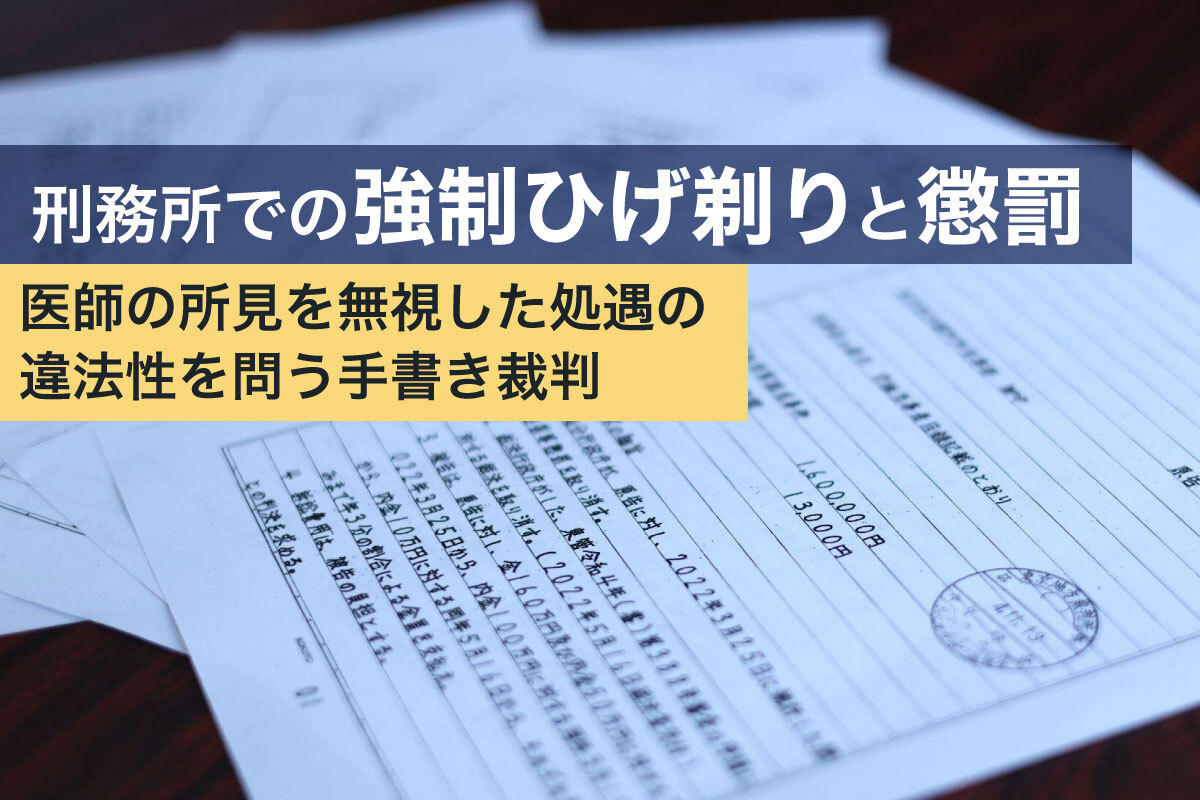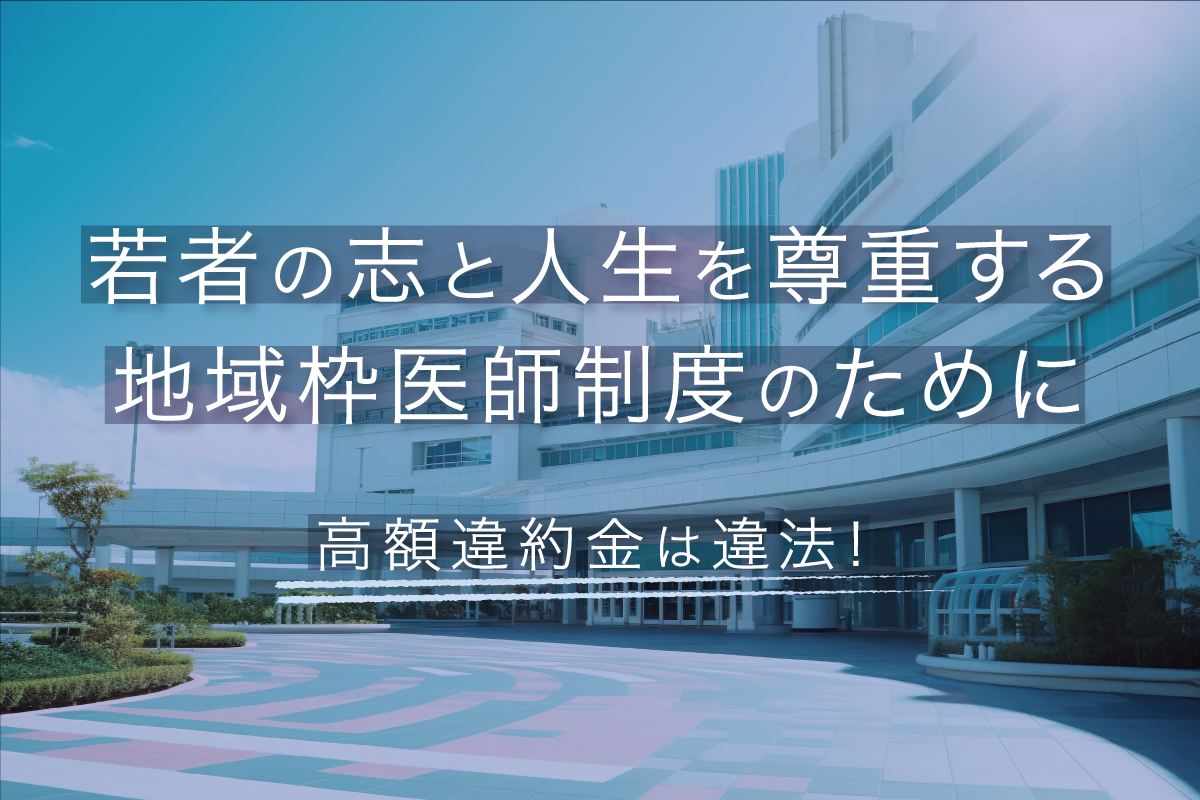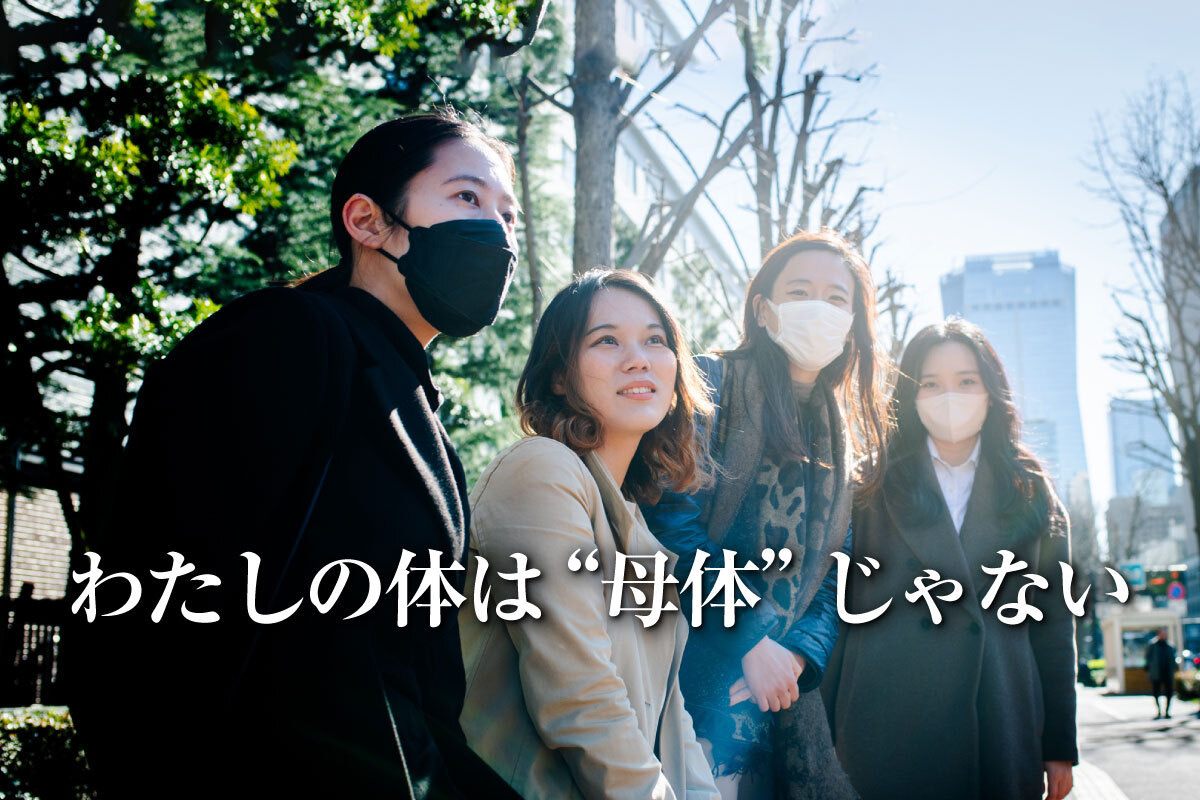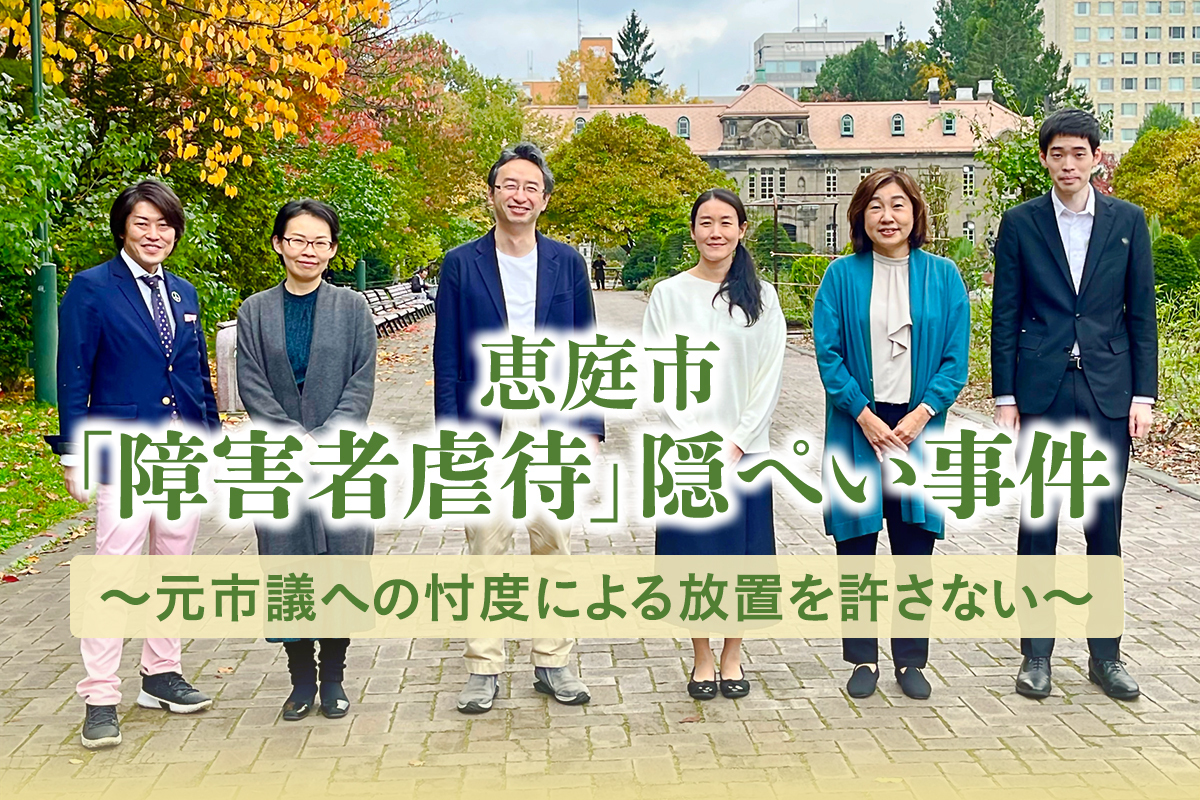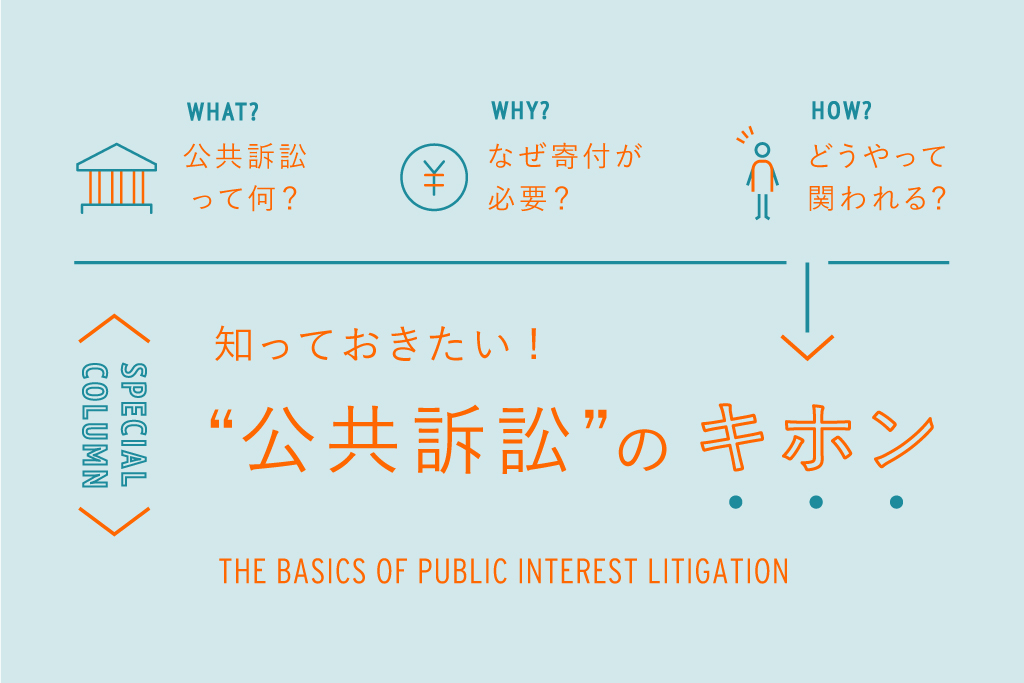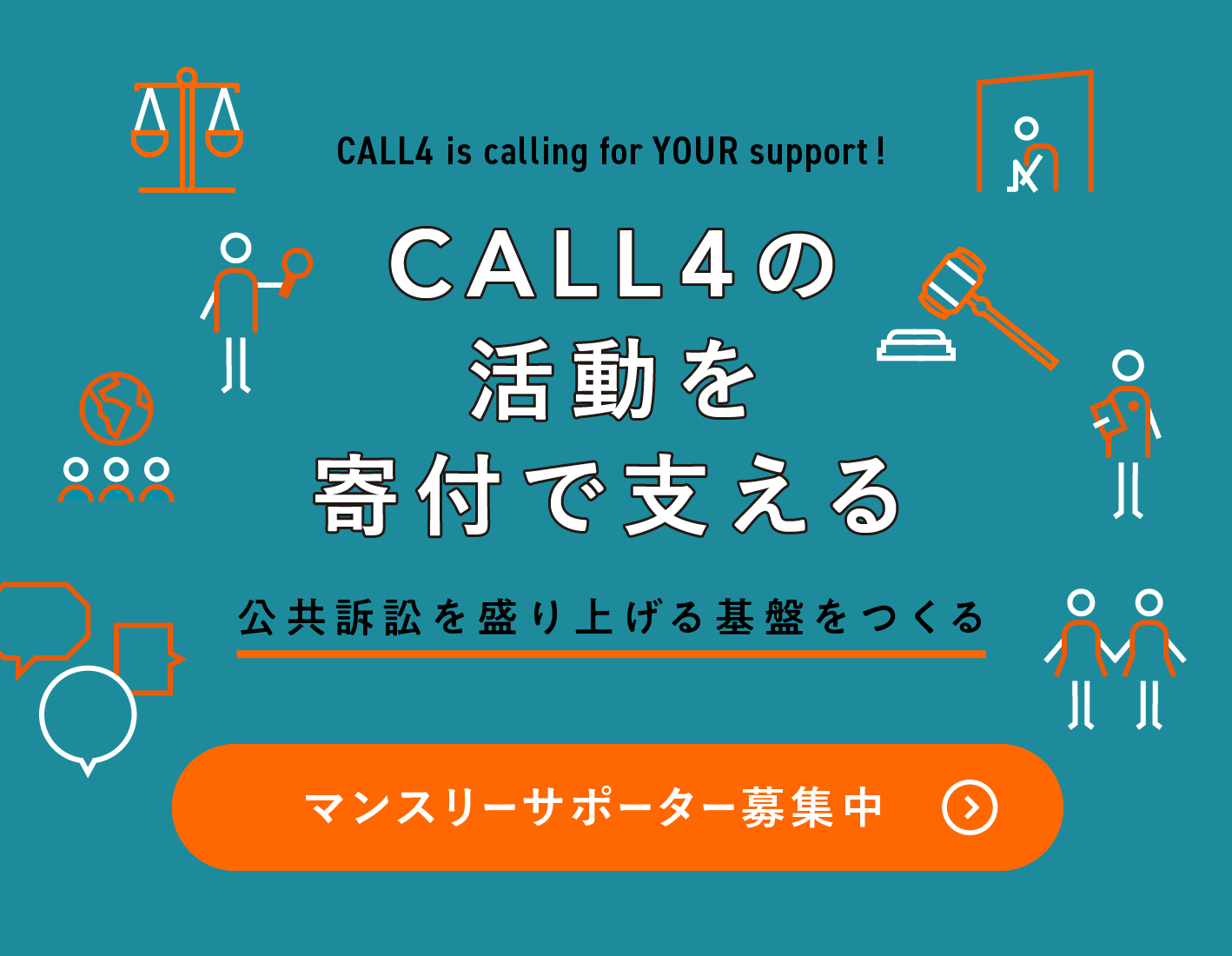病院でよく出る薬を、薬局ですぐ買える「零売」を守る訴訟 Lawsuit to Protect Direct Sales of Common Hospital Medications at Pharmacies

一部の医療用医薬品は本来、処方箋なしで購入可能ですが、厚生労働省の通達により販売や広告が制限されています。零売薬局は忙しい人や軽症の人に適切な薬を提供できますが、国の規制で利用が困難です。この不合理な制限に異議を唱え、必要な人に薬が届く社会を守るため、2025年1月17日、東京地裁に国を相手取った訴訟を提起しました。これは薬剤師だけでなく、医薬品を必要とするすべての人の問題です。 Some common hospital medications can legally be sold without a prescription in Japan, but the Ministry of Health, Labour and Welfare currently restricts their sale and advertising. This makes it hard for direct-sale pharmacies to offer convenient access to needed medicine for busy or mildly ill people. To challenge this unfair limitation and ensure access to medication for those who need it, a lawsuit was filed against the State at Tokyo District Court on January 17, 2025. This issue impacts not only pharmacists, but everyone who relies on accessible medicine.
はじめに
実は、病院でよく出る薬の約半分は処方箋なしで買えるって知っていますか?
病院や診療所などで処方される医療用医薬品の約半数は、薬局で処方箋なしで購入することができます。この仕組みは「零売」と呼ばれ、皆さんが普段病院で処方される薬の多くが対象となっています。特に、軽い症状で病院に行くほどではない場合、零売を利用することで、通院の手間や医療費の負担を軽減することができます。
また、市販薬では対応できない薬剤アレルギーを持つ人にとって非常に便利な仕組みです。市販薬は複数の成分が含まれる合剤が多いため、そのうちのどれかにアレルギーがあると、合剤の薬が使えずに選択肢が限られてしまいますが、零売であれば必要な成分だけを購入することができます。
しかし、この零売の制度は、法的根拠のない厚生労働省の通知によって販売や広告が制限されており、さらに今年の国会では零売を法律で廃止する改正案が提出される見込みです。もしこの改正が進めば、現在認められている処方箋がなくても購入できる薬を、改正後には購入することができなくなり、病院に行かないと薬が手に入らないことになります。結果として、病院の負担が増え、本当に治療が必要な人が受診しづらくなる可能性もあります。
この理不尽な状況を正すため、裁判を起こし、通知の違法性を争います。そして、法改正の動きにも対応し、患者の選択肢を守るための活動を進めていきます。この問題は、単に薬局や医療関係者の問題ではなく、私たち全員に関わる重要な課題です。ぜひ関心を持ち、議論に参加してください。
訴訟の内容
私たちは、「零売」薬局を、続けられるようにするため、国を相手取り、行政訴訟(実質的当事者訴訟)と損害賠償を求める訴訟を起こしました。
現在、「零売」薬局では、厚生労働省の通達によって販売や広告の内容が厳しく制限されています。しかし、この制限には法律上の明確な根拠がなく、本来なら認められるべきものが不当に規制されているのが現状です。
今回の訴訟では、この通達が違法であり無効であること、そして薬剤師には法律に基づいて「零売」を行う正当な権利があることを認めてもらうことを求めています。また、この通達の影響で「零売」薬局は医薬品の卸業者からの仕入れを断られたり、通常より高い価格で仕入れざるを得なかったりするなど、不当な扱いを受けています。さらに、「処方箋がなくても買える」「病院に行かなくても薬が手に入る」「忙しくて病院に行けない人のために」「医療用医薬品を手軽に購入できる」「病院で買うより安く済む」といった広告表現も規制されており、多くの人が「零売」薬局の存在を知ることすらできない状況になっています。
私は、この不当な規制によって「零売」薬局が経済的な損失を受けているだけでなく、必要な薬を必要な人に届ける機会が奪われていることに強い問題意識を持っています。そのため、私たち3つの「零売」薬局は、国に対して損害賠償を求めています。
この問題は私たち薬剤師だけのものではなく、薬を必要とするすべての人に関わる重要な課題です。
零売とは何か
「医療用医薬品」はすべて処方箋が必要?実は違います!
病院で処方される薬(医療用医薬品)は、約2万種類あります。多くの人は「医療用医薬品=処方箋がないと買えない」と思っているかもしれませんが、実はそうではありません。
医薬品について定めている医療機器等の品質、有効性及び安全性の確保等に関する法律(以下「薬機法」と言います。)に基づいて定められている、医療用医薬品のうち約7000種類は「処方箋医薬品ではない医療用医薬品」に分類されており、薬剤師の判断のもと、処方箋なしでも薬局で購入できます。
しかし、今後の法改正によって、この仕組みが制限される可能性があります。もし「処方箋がないと買えない薬」が増えると、これまで手軽に買えていた薬を入手するのが難しくなるかもしれません。
今の法律で処方箋なしで買える代表的な医療用医薬品例
※薬機法49条1項に基づく厚労大臣の指定がない薬局医薬品のことを言います
| 代表的な薬剤名 | 成分名 |
| ① 頭痛・発熱・生理痛などに使われる痛み止め | |
ロキソニン | ロキソプロフェンナトリウム |
| ② 肩こり・腰痛・関節痛などに使われる湿布薬・塗り薬 | |
モーラステープ | ケトプロフェン |
| ③ 炎症や腫れを抑える薬 | |
| トランサミン | トラネキサム酸 |
| ④ 風邪や咳・たん・のどの痛みに使われる薬 | |
PL配合顆粒 | ピーエル配合顆粒 |
| ⑤ 胃の不調や胃もたれ・胃炎に使われる薬 | |
ムコスタ | レバミピド |
| ⑥ 花粉症やアレルギー症状に使われる薬 | |
アレグラ | フェキソフェナジン塩酸塩 |
| ⑦ 目の乾燥やアレルギー症状に使われる点眼薬 | |
ヒアレイン点眼液 | ヒアルロン酸ナトリウム |
| ⑧ ビタミン不足や疲れに使われるビタミン剤 | |
メチコバール | メコバラミン (ビタミンB12:神経障害の改善) |
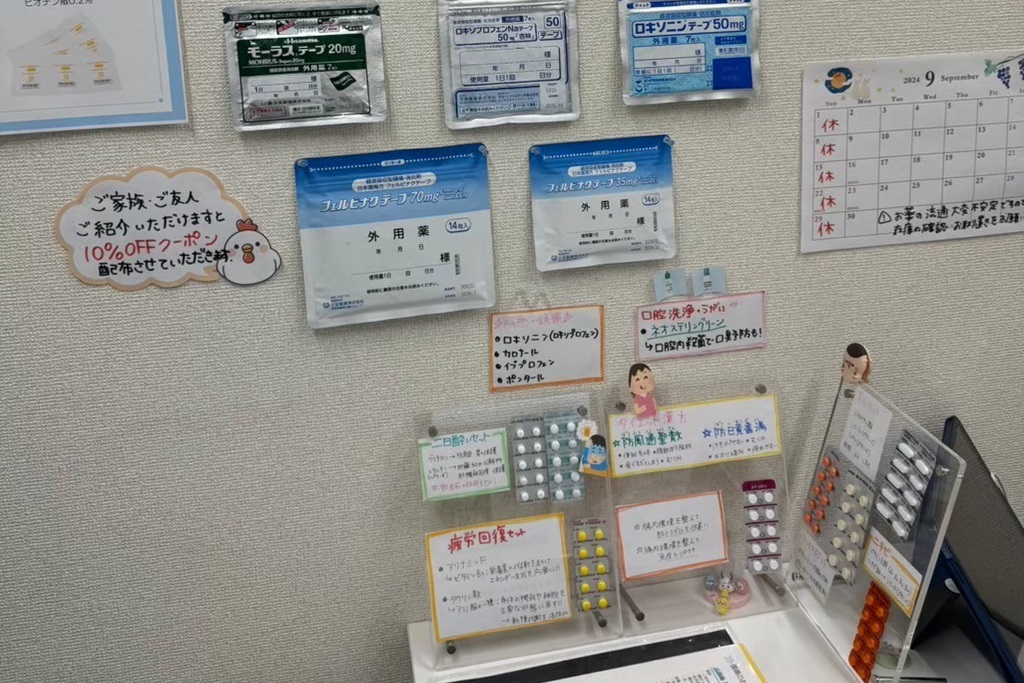
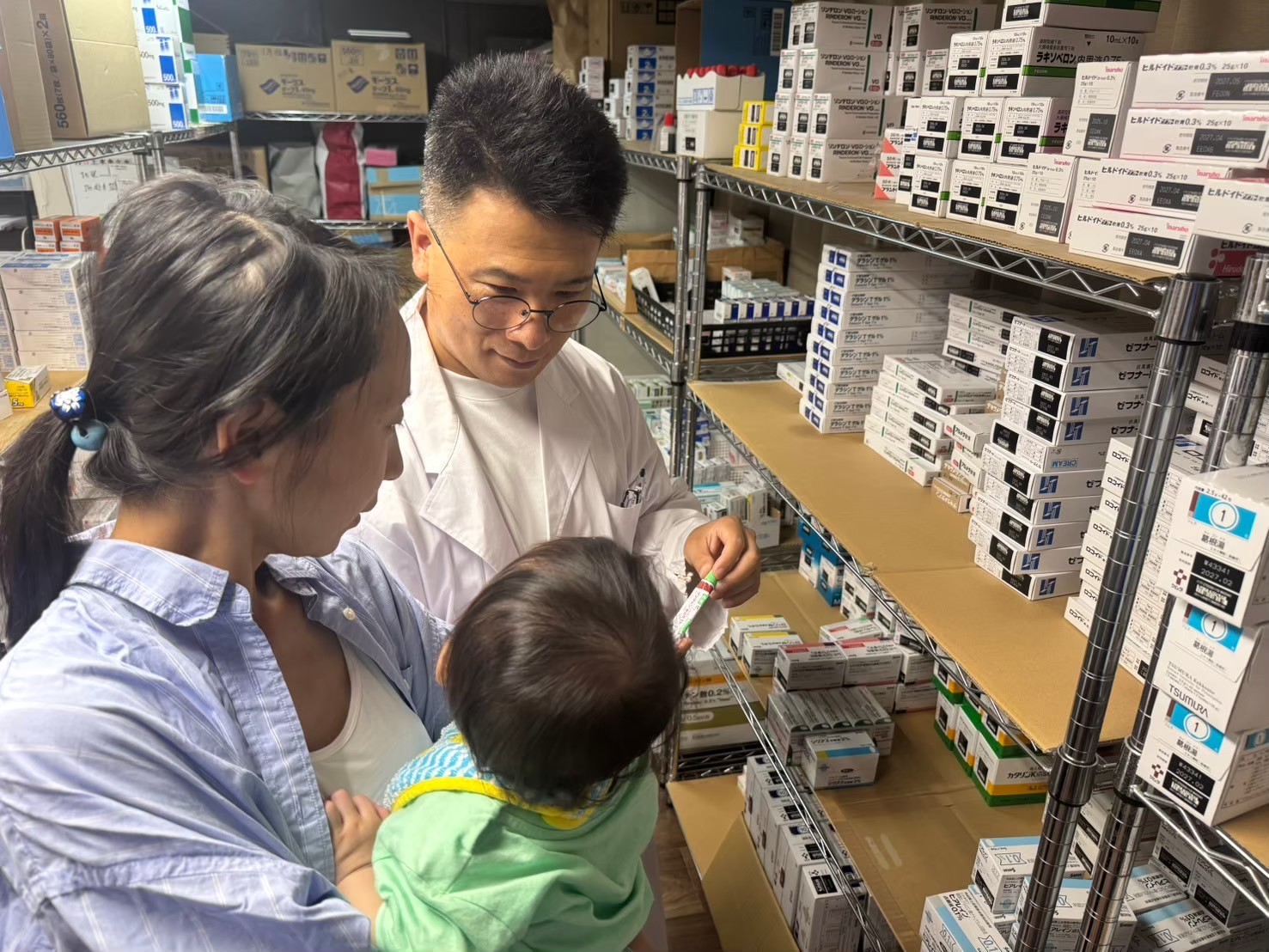
零売のメリット
私たちは日常生活の中で、ちょっとした体調不良のときに「病院に行くほどではないけれど、薬がほしい」と思うことがあるのではないでしょうか?
現行法上では、そういった時の症状を抑える程度の薬を売ることは、薬局に認められていると私たちは解釈しています。
しかし、厚生労働省の「通知」によって、実際には買えるのに零売は大きく制限され、患者が本来の権利として必要な薬を手に入れることが難しくなっています。
さらに、今後の法改正によって、現在は処方箋なしで買える薬が処方箋必須になる可能性もあります。そうなれば、私たちはちょっとした体調不良でも病院に行かざるを得なくなり、時間的・経済的負担が増え、病院の混雑や医療費の増加にもつながるでしょう。
この訴訟は、そうした不合理な制限をなくし、誰もが必要な薬を適切に手に入れられる環境を守るためのものです。
処方箋なしで医療用医薬品を買えることのメリット
① 病院に行かずに薬を手に入れられる
通常、病院で薬をもらうには、診察を受け、処方箋をもらい、薬局で受け取るという手順が必要です。しかし、処方箋なしで買える薬があれば、風邪や胃の不調、花粉症などの軽い症状なら、病院に行かずに適切な薬をすぐに購入できます。
これにより、診察代や処方箋料の節約ができるだけでなく、忙しくて病院に行く時間がない人にとっても大きなメリットになります。
② 病院の混雑を減らし、感染リスクを下げる
病院では、診察までの待ち時間が長く、特にインフルエンザなどの感染症の流行時には、待合室での感染リスクが高まります。
例えば、小さな子どもを連れた方や高齢者にとっては、長時間の待機は大きな負担になります。処方箋なしで買える医薬品があれば、軽い症状なら病院に行かずに済み、感染リスクを避けることができます。
また、外国人や健康保険証を持っていない人にとっても、病院に行かずに薬を購入できることは大きな利便性となります。
③ 医療費の削減につながる
日本の医療費は年々増加し、国の財政にも大きな負担となっています。特に、軽い症状で病院を受診するケースが増えると、健康保険の負担も増え、結果として私たちが支払う保険料の上昇につながる可能性があります。
零売が維持されれば、患者は診察代や処方箋料を節約でき、国全体の医療費の削減にも貢献します。
また、病院の負担が減ることで、本当に治療が必要な重症患者に対して、医療リソースを適切に配分することができます。
④ 休日や夜間でも薬を購入できる
多くの病院やクリニックは平日の日中しか開いていません。 しかし、仕事が忙しくて病院に行く時間がない人や、夜間や週末に急に薬が必要になった人にとって、処方箋なしで買える薬の選択肢は重要です。
現在の法律のもとで購入できる薬があれば、病院が閉まっている時間でも薬を手に入れることができるため、安心して日常生活を送ることができます。
⑤ 薬剤アレルギーのある人が安全に薬を選べる
市販薬の多くは、複数の有効成分を含む「合剤」として販売されています。しかし、特定の成分にアレルギーがある人にとっては、それが命に関わるリスクになる場合もあります。
処方箋なしで買える医療用医薬品の選択肢があれば、アレルギーの原因となる成分を避け、必要な成分だけを選んで薬を使用することが可能になります。しかし、厚生労働省の通知による制限があるため、こうした選択肢が狭められてしまっています。
裁判の争点
この訴訟では、厚生労働省の通知が違法であり無効であることを確認すること、そしてその影響で生じた損害について賠償を求めることの2つが大きな争点となっています。
① 厚生労働省の通知は法律に違反している
国民の権利を制限するには、国会が定めた法律に基づく必要があります。 しかし、医薬品の販売ルールを定める「薬機法」では、処方箋医薬品として指定されたもの以外の医療用医薬品(いわゆる「零売」医薬品)について、販売を制限する規定はありません。
にもかかわらず、厚生労働省は、法律の根拠なしに、2つの通知を出して薬局での販売を制限しました。
厚生労働省が発表した2つの通知
- 「薬局医薬品の取扱いについて」(平成26年3月18日 薬食発0318第4号)
- 「処方箋医薬品以外の医療用医薬品の販売方法等の再周知について」(令和4年8月5日 薬生発0805第23号)
これらの通知では、以下のような制限が設けられました。
✅ 「処方箋に基づく薬剤師による薬剤の交付が原則である」 → 本来は法律で制限されていないのに、処方箋なしでの販売を原則認めないとする内容。
✅ 「必要な受診勧奨を行うこと」を義務化 → 本来、薬剤師の判断で販売できるはずの薬に対し、販売前に病院の受診を勧めなければならないとするもの。
✅ 広告の大幅な制限 → 「処方箋がなくても買える」「病院に行かなくても買える」といった表現を禁止。
これらの通知は、法律には存在しない制限を設け、事実上、処方箋なしで医療用医薬品を販売することを難しくするものです。
このため、本訴訟では、これらの通知は薬機法に違反しており無効であること、そして薬剤師が「零売」を行う権利があることを確認するよう求めています。
国側は、「これらの通知は薬機法の解釈を示したものであり、有効だ」と主張する可能性があります。しかし、薬機法にはそもそもこのような制限を設ける規定がなく、国会で決められてもいないルールを通知で強制することは、到底認められません。
② 通知による不当な制限で生じた損害の賠償請求
厚生労働省の通知によって、「零売」を行う薬局は大きな不利益を被っています。特に、大手医薬品卸売会社4社との取引ができなくなったことは重大な問題です。
現在、日本の医薬品卸市場の約90%を占める大手4社は、「零売」薬局だからという理由だけで、取引を拒否しています。 その結果、「零売」薬局は、大手4社から直接仕入れができず、2次卸を通じて割高な価格でしか医薬品を購入できない状況に置かれています。
この問題は、厚生労働省の通知が「法的拘束力を持つ」と考えられていることが原因です。実際に、厚生労働省の担当局長が、医薬品業界向けのメディアを通じて「通知は法的拘束力を持つ」という見解を示したため、大手4社は「零売」薬局との取引を控えざるを得ない状況になっています。
さらに、厚生労働省の通知では、「処方箋がなくても買える」などの広告表現を禁止しています。これにより、「零売」薬局の宣伝が大幅に制限され、本来ならば来店するはずの患者がこの仕組みを知ることができず、売上の減少につながっています。
この訴訟では、
- 大手卸4社から取引を拒否されたことにより、仕入れ価格が高騰した分の損害の賠償
- 広告を規制されたことで売上が減少した分の損害の賠償
を国に対して求めています。
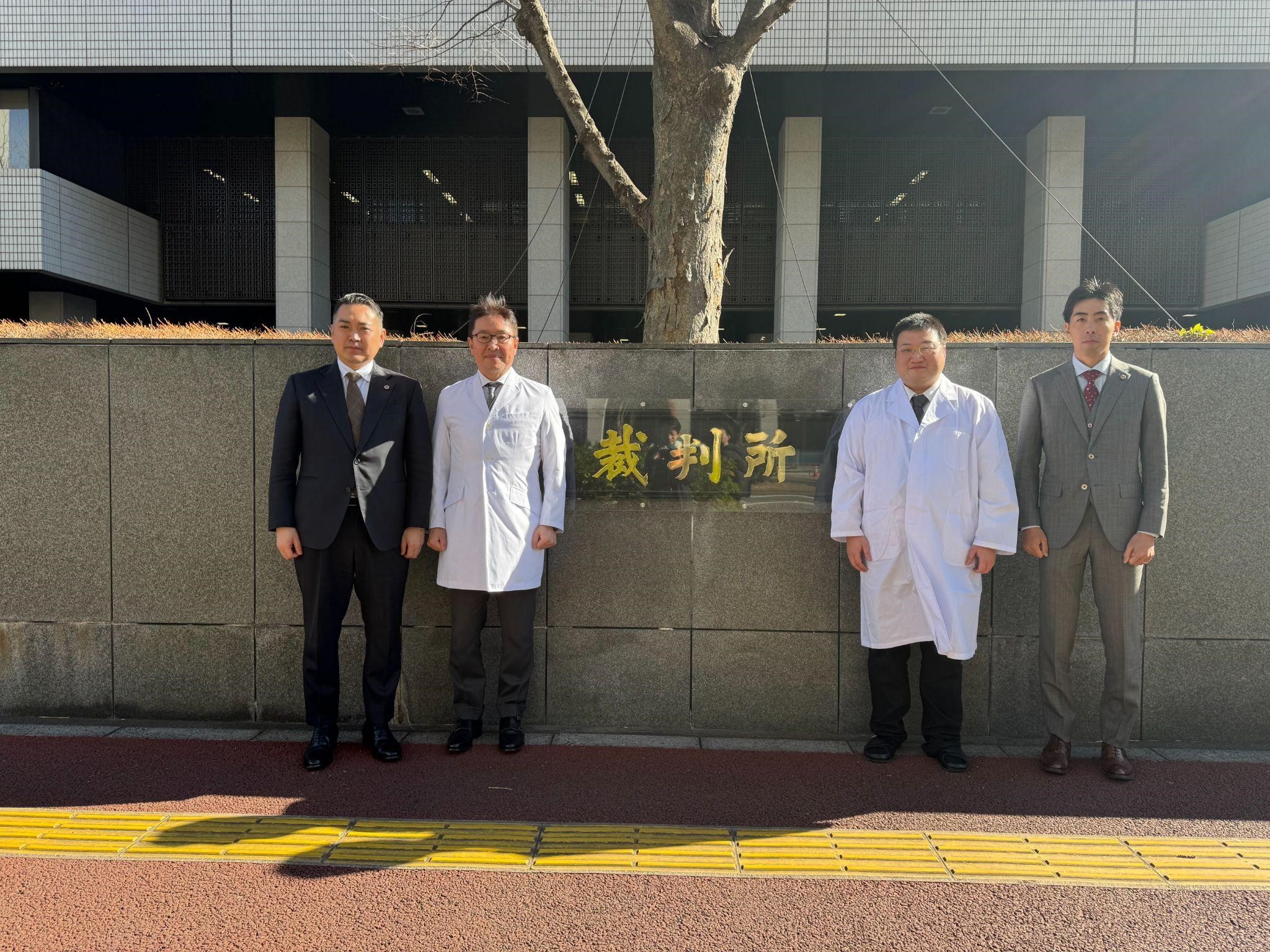
▲提訴時の様子
社会的意義
本訴訟は、患者の利便性向上、医療費削減、医療資源の最適化、そして持続可能な医療制度の構築を目的とした公共的意義を持つものです。また、法的根拠の不明確な通知行政や、過剰な規制強化への問題提起でもあります。
医療制度の現状と課題
日本の医療制度は、少子高齢化や経済成長の停滞により、深刻な持続可能性の危機に直面しています。特に2040年には社会保障給付費が190兆円を超える見通しで、医療資源の効率的な活用が急務です。
一方で、病床利用率の低下や診療所の医師の高齢化、医療従事者の確保難といった課題もあり、今後の医療提供体制の維持が困難になる懸念があります。
零売の意義
こうした課題に対し、軽度な症状に対して患者が医師の診察なしに適切な医薬品を薬局で購入できる「零売」は、医療機関の負担軽減と医療費の抑制につながります。
また、薬剤師の専門性を活かした対応は、患者の健康リテラシー向上にもつながるため、零売の普及は、医療制度の持続可能性に寄与する重要な手段と考えます。
通知行政の不合理性と法改正への抵抗
しかし、現行の規制により零売の実施が制限されています。厚生労働省は、医療用医薬品は原則として処方箋に基づき販売すべきとする通知を発出していますが、この通知には法的根拠が明確でないとの指摘があります。さらに、通知に基づく規制は、医療用医薬品の販売に関する柔軟な対応を阻害し、患者の利便性や医療費削減といった公共の利益を損なう結果となっています。
加えて、現在審議中の医薬品医療機器等法の改正案では、零売に対する大幅な規制強化が検討されています。この法改正が施行されれば、零売が法的に禁止される可能性があり、患者の選択肢がさらに制限されることが懸念されます。私は、このような不合理な通知行政や法改正に対しても抵抗の意思を示すため、訴訟を提起しました。
訴訟の背景と目的
労働省の通知は、零売の実施を不当に制限していますが、その法的根拠は不明確です。さらに、現在審議中の法改正では、零売を事実上禁止する規制強化が検討されており、患者の選択肢が奪われる懸念があります。
こうした不合理な通知行政や法改正に対し、私たちは訴訟を通じて異議を唱え、制度の改善を求めています。
この訴訟の公共的意義
- 患者の利便性向上:病院を受診せずに医薬品を入手でき、迅速な対応が可能になります。
- 医療費削減:軽症患者の外来受診が減少し、医療保険財政の負担が軽減されます。
- 医療資源の最適化:医療従事者が重症患者への対応に集中することが可能になります。
- 法的明確化:通知行政の是正と、零売の法的根拠が明確化されます。
- 法改正への抵抗:患者の選択肢を守る制度設計が実現できます。
資金の使途
- 訴訟費用:弁護士費用や裁判に関連する手続き費用に充てられます。今回の訴訟は零売制度を守るための重要なものとなるため、専門的な法的サポートが必要です。
- 広報活動費:零売制度の重要性をより多くの人々に伝えるための広報活動にも資金を投入します。パンフレットやウェブサイト、SNSを通じた情報発信、またメディアへの露出を通じて、社会的な理解と支持を得ることを目指します。
- 調査費用:零売制度の現状や、患者や薬局への影響を明らかにするための調査活動を行います。これにより、裁判において説得力のあるデータを提示できるよう準備します。
ご支援いただいた資金は、この重要な裁判において、患者と薬局の未来を守るために慎重かつ効果的に活用します。
原告の思い
原告代表 長澤 育弘さん
「薬剤師として、もっとできることがあるはずだ。」
そんな思いから、2016年に池袋駅の近くで零売薬局「池袋セルフメディケーション」を開業しました。もともとは病院薬剤師として、糖尿病患者さんへの栄養相談や抗がん剤の調整業務を担当。その後、ドラッグストア業界に転職し、さらに派遣薬剤師として全国を巡りながら、3年かけて開業資金を貯めました。
開業に至るまで、試行錯誤の連続でした。23区で初めての零売専門薬局を立ち上げるにあたり、三鷹市の先行事例を参考にしましたが、当時、全国でも零売専門薬局はわずか4店舗しかなく、まさに未開拓の分野。新しい仕組みを広めるのは簡単ではなく、保健所の指導や卸業者との取引問題など、想像以上に高い壁が次々と立ちはだかりました。悩みに悩んだ末、一度は零売事業から撤退せざるを得ませんでした。オリンピックが開かれる2020年直前の苦い思い出です。
それでも、「薬剤師として、患者さんの選択肢を広げたい」という思いは変わりません。今も通常の調剤薬局を運営しながら、薬剤師として今できることを模索しています。そして今回の裁判も、薬剤師の専門性を活かし、患者さんがより自由に薬を選べる環境を守るために決意しました。
この挑戦は決して楽なものではありません。でも、支えてくださる皆さんのおかげで、一歩ずつ前に進めています。まだまだやりたいこと、伝えたいことがたくさんあります。ぜひ、どこかでお話しできたら嬉しいです。どうぞ、温かく見守ってください!
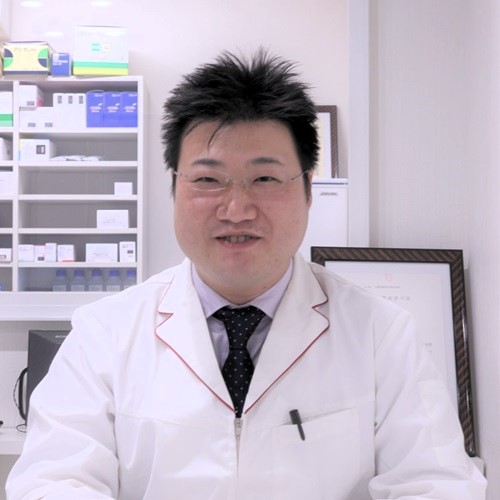
原告 山下 吉彦さん
平成9年、薬剤師登録。原告であるまゆみ薬局株式会社の代表取締役です。当社は、令和5年12月1日に設立され、福岡県福岡市博多区博多駅東1丁目11-15博多駅東口ビル1Fにて、零売薬局である「まゆみ薬局」を経営しています。地域の皆様のお役に立てる「街の保健室」を目指して日々尽力しております。世間の方々に、処方箋がなくても医療用医薬品が買える制度があることを知ってもらいたいと考えています。零売薬局とは処方箋なしで一部の医療用医薬品を必要最小限の量で販売する薬局です。これは急な体調不良や忙しくて医療機関を受診できない方々にとって、たいへん便利なサービスです。しかし、現在この零売に対する規制が強化されようとしており、零売薬局が事実上、存続できないかもしれないという懸念を抱いております。私たち零売薬局は、法令を遵守し、薬剤師の専門性を最大限に活かして、適切な医薬品提供を行っています。しかしながら規制が強化されることで、地域医療への貢献が制限され、零売薬局を頼りにされている方々の医薬品へのアスセスの一つが消失することで、迅速な医薬品の提供が困難になるのはいかがなものかというふうに考えています。皆さまには、零売薬局の必要性と現状についてご理解いただき、ご支援を賜りますようお願い申しあげます。
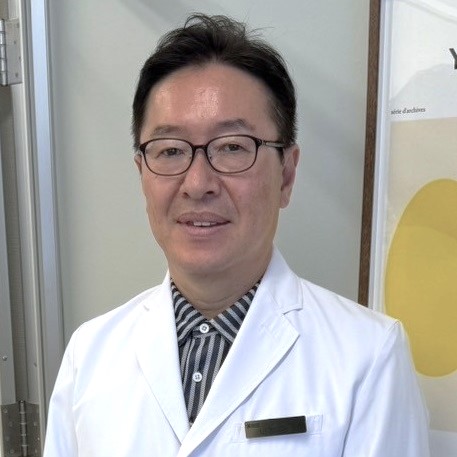
原告 箱石 智史さん
平成28年、薬剤師登録。原告であるGrandHealth株式会社の代表取締役です。当社は、令和2年10月14日に設立され、東京都台東区東上野2-11-6植村ビル1Fにて、零売薬局である「Grand薬局上野店」を経営しています。(上野駅・御徒町駅徒歩5分)医療用医薬品の大手4大卸会社と取引できず、高値での仕入れとなり苦労もありますが、地域の皆様に、安全にかつ迅速に医療用医薬品を届けるよう頑張っています。開業当初は来客が0人の日々が続き、窮地に追い込まれた時もありましたが、薬剤師としてお客様に価値提供を続けた結果、現在では毎日たくさんのお客様が来店してくださるようになりました。従業員も雇用できるまで成長ができました。そして何よりお客様から感謝の言葉もいただいております。そんな価値ある零売薬局が、法改正でなくなってしまう帰路に立たされていますが、この訴訟で私たちが置かれている状況をお伝えしたいです。
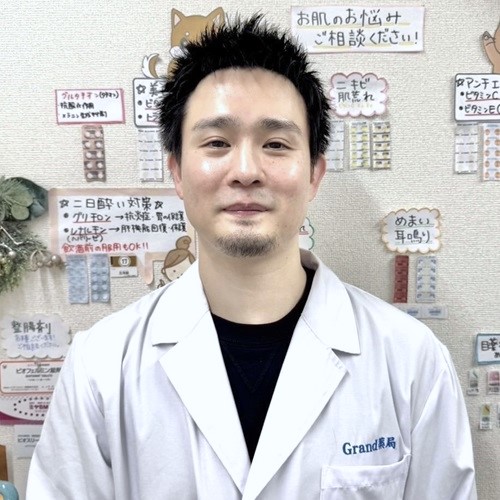
弁護団からのメッセージ
私たち弁護団は、この訴訟に強い使命感を持って臨んでいます。
本来、法律が認めているにもかかわらず、厚生労働省の通知によって「零売」は不当に制限され、さらに法改正によって完全に禁止されようとしています。私たちの社会は、国会で定められた法律に基づいて成り立っているはずです。しかし、今回の問題は、法律に基づかない行政の通知によって、薬剤師の職業が奪われ、患者の選択肢が狭められているという極めて不当な状況です。
「零売」を行う薬剤師の方々は、患者のために日々努力してきました。軽い症状で病院を受診する時間がない人、アレルギーのため市販薬が使えない人、病院の混雑を避けたい人——そうした方々が必要な薬を適切に手に入れられるように支えてきたのです。それにもかかわらず、国の一方的な制限によって、「零売」薬局は仕入れを断られ、広告を禁じられ、経営が困難な状況に追い込まれています。 そして今、法改正が行われれば、彼らは廃業を余儀なくされるでしょう。
私たちは、この不条理を絶対に許しません。 法律に基づかずに国が国民の権利を奪うことは、民主主義社会において決してあってはならないことです。今回の訴訟は、「零売」を守るためだけではなく、法律を無視した行政の横暴を正し、国民の正当な権利を守るための戦いでもあります。
私たち弁護団は、この不当な状況を変えるために、全力を尽くします。
担当弁護士の紹介
弁護士 西浦善彦
2009年弁護士登録 西浦・西中山法律事務所(港区虎ノ門)所属。
企業法務、薬機法、芸能法務を中心に民事訴訟、刑事訴訟の代理人を手がけています。
日本弁護士連合会 民事裁判手続に関する委員会委員。
第二東京弁護士会 司法制度調査会委員。
弁護士 平裕介
2008年弁護士登録 AND綜合法律事務所(中央区日本橋)所属。
行政法の研究者でありながら、数々の行政訴訟の代理人を務めています。
「宮本から君へ」訴訟・角川人質司法違憲訴訟・砂川猟銃訴訟の弁護団|「セックスワークにも給付金を」訴訟・共産党松竹事件・共産党神谷事件の弁護団長
弁護士 佐々木悠太
2020年弁護士登録 西浦・西中山法律事務所(港区虎ノ門)所属。
取扱業務は、企業法務、労務問題を中心に訴訟を担当しています。
おわりに
私たちの訴訟は、医療制度の持続可能性を確保し、患者の利便性向上や医療費削減といった公共の利益を守るための重要な取り組みです。また、不合理な通知行政や法改正に対する抵抗の意味も持っています。
どうか、未来の医療を守るため、薬剤師の誇りを守るため、そして社会全体の負担を増やさないために、あなたの力を貸してください。どんな小さなご支援も、この闘いを続けるための大きな力となります。ともに、より良い未来をつくっていきましょう。
Introduction
Did you know that about half of the medications commonly prescribed at hospitals can actually be purchased without a prescription?
Approximately half of the prescription drugs prescribed by hospitals and clinics can be purchased at pharmacies without a prescription. This system is called "over-the-counter sales," and it applies to many of the drugs that you would normally get prescribed at a hospital. In particular, if you have mild symptoms that are not serious enough to require a visit to the hospital, using over-the-counter sales can help reduce the hassle of going to the hospital and the burden of medical expenses.
It is also a very convenient system for people with drug allergies that cannot be treated with over-the-counter drugs. Many over-the-counter drugs are combination drugs that contain multiple ingredients, so if you are allergic to one of them, you cannot use the combination drug and your options are limited, but with retail sales, you can purchase only the ingredients you need.
However, this system of over-the-counter sales is subject to restrictions on sales and advertising based on notifications from the Ministry of Health, Labor and Welfare that have no legal basis, and a bill to abolish over-the-counter sales by law is expected to be submitted to the Diet this year. If this amendment goes ahead, people will no longer be able to buy medicines that can currently be purchased without a prescription, and will have to go to a hospital to get them. As a result, the burden on hospitals will increase, and it may become more difficult for people who really need treatment to visit hospitals.
To correct this unreasonable situation, we will file a lawsuit and fight the illegality of the notification. We will also respond to the movement to amend the law and continue our activities to protect patients' options. This is not just an issue for pharmacies and medical professionals, but an important issue that concerns all of us. Please take an interest and join the discussion.
Summary of the lawsuit
In order to allow us to continue operating our "overall" pharmacies, we filed an administrative lawsuit (actual party lawsuit) against the government, seeking damages.
Currently, sales and advertising at "over-the-counter" pharmacies are strictly restricted by directives from the Ministry of Health, Labor and Welfare. However, these restrictions have no clear legal basis, and what should be permitted is being unfairly restricted.
In this lawsuit, we are seeking to have this notification declared illegal and invalid, and for it to be recognized that pharmacists have a legitimate right to engage in "over-the-counter" sales under the law. Furthermore, as a result of this notification, "over-the-counter" pharmacies have been unfairly treated, such as being refused purchases from pharmaceutical wholesalers or being forced to purchase at higher than normal prices. Furthermore, advertising expressions such as "You can buy without a prescription," "You can get medicine without going to the hospital," "For people who are too busy to go to the hospital," "You can easily purchase medical drugs," and "It's cheaper than buying at a hospital" are also restricted, resulting in a situation where many people are not even aware of the existence of "over-the-counter" pharmacies.
I am deeply concerned that this unjust regulation not only causes economic losses for over-the-counter pharmacies, but also robs them of the opportunity to provide necessary medicines to those who need them. For this reason, the three over-the-counter pharmacies are seeking compensation from the government.
This is not just an issue for us pharmacists, but an important issue that affects everyone who needs medicines.
What is retail sales?
Do all "medical drugs" require a prescription? Actually, that's not true!
There are about 20,000 types of medicines prescribed at hospitals (medical drugs). Many people may think that "medical drugs = you can't buy them without a prescription," but that's not actually the case.
Under the Act on Ensuring Quality, Efficacy and Safety of Medical Devices, etc. (hereinafter referred to as the "PMD Act"), which regulates pharmaceuticals, approximately 7,000 types of medical drugs are classified as "non-prescription medical drugs" and can be purchased at pharmacies without a prescription, at the discretion of the pharmacist.
However, future changes to the law may restrict this system. If the number of "medicines that cannot be purchased without a prescription" increases, it may become more difficult to obtain medicines that have been easily purchased up until now.
Examples of typical prescription drugs that can be purchased without a prescription under current law
*This refers to pharmacy drugs that have not been designated by the Minister of Health, Labour and Welfare under Article 49, Paragraph 1 of the Pharmaceuticals and Medical Devices Act.
| Representative drug names | Ingredient name |
| ① Painkillers used for headaches, fevers, menstrual cramps, etc. | |
Loxonin Calonal Brufenmovic Nike San Hypensolanthal | Loxoprofen sodium Acetaminophen Ibuprofen Meloxicam Naproxen Etodolactia aramide |
| ② Poultices and ointments used for stiff shoulders, lower back pain, joint pain, etc. | |
Morast Tape Cell Touch Patch Voltaren Tape Inteban Cream Loco Tape | Ketoprofen, felbinac, diclofenac sodium, indomethacin, esflurbiprofen |
| 3) Medicine to suppress inflammation and swelling | |
| Transamin | Tranexamic acid |
| 4. Medicines used for colds, coughs, phlegm, and sore throats | |
PL Blend Granules Mejicom Mucodyne Mucosolvan Bisolbon | PL Granules Dextromethorphan Hydrobromide Carbocisteine Ambroxol Hydrochloride Bromhexine |
| 5. Medicines used for stomach problems, indigestion, and gastritis | |
Mucosta Servex Promac | Rebamipide doteprenone polaprezinc |
| 6. Medicines used for hay fever and allergy symptoms | |
Allegra Allegion Claritin Zyrtec | Fexofenadine hydrochloride Epinastine hydrochloride Loratadine Cetirizine hydrochloride |
| 7. Eye drops used for dry eyes and allergy symptoms | |
Hyalein eye drops Livostin eye drops | Sodium Hyaluronate Levocabastine Hydrochloride |
| 8. Vitamin supplements used for vitamin deficiency and fatigue | |
Methycobal Alinamin F25 | Mecobalamin (Vitamin B12: improves neuropathy) |


The benefits of retail sales
In our daily lives, when we feel a little unwell, we sometimes think, "It's not serious enough to go to the hospital, but I'd like some medicine."
Our interpretation is that under current law, pharmacies are permitted to sell medications sufficient to suppress symptoms in such cases.
However, due to a "notice" from the Ministry of Health, Labor and Welfare, over-the-counter sales are significantly restricted, making it difficult for patients to obtain the medicines they need, which is their right, even though they are actually able to purchase them.
Furthermore, future changes to the law may result in prescription-only medicines that can currently be purchased without a prescription becoming prescription-required . If this happens, we will be forced to go to the hospital even for minor illnesses, which will increase our time and financial burden, lead to hospital congestion, and increase medical costs .
This lawsuit aims to eliminate these unreasonable restrictions and protect an environment in which everyone can appropriately obtain the medications they need .
The benefits of being able to buy medical drugs without a prescription
① You can get medicine without going to the hospital
Normally, to get medicine from a hospital, you have to go through a procedure of being examined, getting a prescription, and then picking it up at a pharmacy. However, if there are medicines that can be purchased without a prescription, you can immediately purchase the appropriate medicine for minor symptoms such as a cold, stomach upset, or hay fever without going to the hospital.
This not only saves on medical consultation and prescription fees , but is also a great benefit for people who are too busy to have time to go to the hospital.
② Reduce hospital congestion and lower the risk of infection
At hospitals, waiting times to be seen are long, and the risk of infection in waiting rooms is higher, especially during epidemics of infectious diseases such as influenza.
For example, long wait times can be a huge burden for people with small children or the elderly. If there were medicines that could be purchased without a prescription, people with mild symptoms could avoid going to the hospital and avoid the risk of infection .
Additionally, for foreigners and people who do not have health insurance cards, being able to purchase medicine without going to the hospital is a great convenience.
3) It will lead to reduced medical costs
Medical expenses in Japan are increasing year by year, placing a heavy burden on the national finances. In particular, if more people visit hospitals for minor symptoms, the burden on health insurance will increase, which could result in higher insurance premiums.
If retail sales are maintained, patients will be able to save on consultation fees and prescription costs, contributing to reducing medical costs across the country.
In addition, by reducing the burden on hospitals, medical resources can be allocated appropriately to seriously ill patients who truly need treatment.
4. You can buy medicines even on holidays and at night
Many hospitals and clinics are only open during the day on weekdays, but for people who are too busy at work to make time to go to the hospital, or who suddenly need medicine at night or on weekends, having options for over-the-counter medications is important.
If there are medications available under current law, you can go about your daily life with peace of mind, knowing that you will be able to get them even when hospitals are closed .
5. People with drug allergies can safely choose their medicine
Many over-the-counter drugs are sold as "combination drugs" that contain multiple active ingredients. However, for people who are allergic to certain ingredients, this can pose a life-threatening risk.
If there were options for prescription drugs that could be purchased without a prescription, it would be possible to avoid ingredients that cause allergies and choose only the ingredients you need . However, restrictions imposed by notifications from the Ministry of Health, Labor and Welfare have limited these options.
Issues at issue
The two main issues in this lawsuit are whether to confirm that the Ministry of Health, Labour and Welfare's notification is illegal and invalid, and whether to seek compensation for damages caused by it.
① The Ministry of Health, Labor and Welfare's notification violates the law
Restrictions on the rights of citizens must be based on laws enacted by the Diet. However, the Pharmaceuticals and Medical Devices Act, which sets out rules for the sale of pharmaceuticals, does not contain any provisions restricting the sale of medical drugs other than those designated as prescription drugs (so-called "over-the-counter" drugs).
Despite this, the Ministry of Health, Labour and Welfare issued two notices restricting sales at pharmacies, without any legal basis.
Two notices issued by the Ministry of Health, Labor and Welfare
- "Handling of pharmaceuticals at pharmacies" (March 18, 2014, Yakushoku Notification No. 0318-4)
- "Re-publication of information on sales methods of non-prescription drugs" (PSEHB Notification No. 0805-23, August 5, 2022)
These notices included the following restrictions:
✅ "In principle, medications are dispensed by pharmacists based on prescriptions" → Although there is no actual legal restriction, this means that sales without a prescription are not permitted in principle.
✅ Making it mandatory to "recommend necessary medical examinations" → This means that pharmacists must recommend a visit to a hospital before selling medicines that they could otherwise sell at their discretion.
✅ Significant restrictions on advertising → Expressions such as "You can buy it without a prescription" or "You can buy it without going to the hospital" are prohibited.
These notices impose restrictions that do not exist in law, effectively making it harder to sell medical drugs without a prescription.
For this reason, this lawsuit seeks to declare that these notices are invalid as they violate the Pharmaceutical and Medical Device Act, and to confirm that pharmacists have the right to engage in "over-the-counter sales."
The government may argue that these notifications are interpretations of the Pharmaceuticals and Medical Devices Act and are therefore valid. However, the Pharmaceuticals and Medical Devices Act does not contain any provisions imposing such restrictions in the first place, and it is completely unacceptable to enforce rules that have not even been decided by the Diet through notifications.
② Claims for damages caused by unreasonable restrictions due to notification
The notification from the Ministry of Health, Labor and Welfare has caused major disadvantages to pharmacies that sell over the counter drugs. In particular, it is a serious problem that they are no longer able to do business with the four major pharmaceutical wholesale companies.
Currently, the four major companies, which account for approximately 90% of Japan's pharmaceutical wholesale market, refuse to do business with "over-the-counter" pharmacies simply because they are "over-the-counter" pharmacies. As a result, "over-the-counter" pharmacies are unable to purchase medicines directly from the four major companies, and are forced to purchase medicines at inflated prices only through secondary wholesalers.
This problem is caused by the fact that the notification from the Ministry of Health, Labor and Welfare is considered to be "legally binding." In fact, the Director-General of the Ministry of Health, Labor and Welfare stated through media aimed at the pharmaceutical industry that "the notification is legally binding," which has forced the big four companies to refrain from doing business with "over-the-counter" pharmacies.
In addition, a notice from the Ministry of Health, Labor and Welfare prohibits advertising phrases such as "You can buy it without a prescription." This significantly limits the advertising of "over-the-counter" pharmacies, and patients who would otherwise visit the stores are unable to learn about this system, leading to a decrease in sales.
In this lawsuit,
- Compensation for damages incurred due to price hikes caused by four major wholesalers refusing to do business with us
- Compensation for damages for loss of sales due to advertising restrictions
We are asking the government to do the following.

▲The scene at the time of filing the lawsuit
social significance
This lawsuit has public significance as it aims to improve patient convenience, reduce medical costs, optimize medical resources, and build a sustainable medical system. It also raises the issue of notification administration with unclear legal grounds and excessive tightening of regulations.
Current status and issues of the medical system
Japan's healthcare system is facing a serious sustainability crisis due to a declining birthrate, an aging population, and stagnant economic growth. With social security benefits expected to exceed 190 trillion yen by 2040, efficient use of healthcare resources is an urgent task.
On the other hand, there are issues such as a declining occupancy rate of hospital beds, the aging of clinic doctors, and difficulties in securing medical personnel, and there are concerns that it will be difficult to maintain the medical care system in the future.
The significance of selling at a loss
To address these issues, "over-the-counter" sales, which allow patients to purchase appropriate medicines for mild symptoms at pharmacies without seeing a doctor, can help reduce the burden on medical institutions and curb medical costs.
In addition, utilizing the expertise of pharmacists will also help improve patients' health literacy, so we believe that the spread of over-the-counter medicines is an important means of contributing to the sustainability of the healthcare system.
The irrationality of notification administration and resistance to legal reform
However, current regulations restrict the implementation of over-the-counter sales. The Ministry of Health, Labor and Welfare has issued a notice stating that, in principle, medical drugs should be sold only with a prescription, but it has been pointed out that this notice does not have a clear legal basis. Furthermore, regulations based on the notice impede flexibility in the sale of medical drugs, resulting in the undermining of public interests such as patient convenience and reduced medical costs.
In addition, the proposed amendments to the Pharmaceuticals and Medical Devices Act, currently under deliberation, are considering significantly strengthening regulations on over-the-counter sales. If these amendments are enacted, over-the-counter sales may be legally prohibited, and there are concerns that patient options will be further restricted. I filed this lawsuit to demonstrate my intention to resist these unreasonable administrative notifications and amendments to the law.
Background and purpose of the lawsuit
The Ministry of Labor's notification unfairly restricts the practice of over-the-counter sales, but the legal basis for this is unclear. Furthermore, the amendment to the law currently under consideration is being considered to strengthen regulations that would effectively ban over-the-counter sales, raising concerns that this would take away patients' choices.
We are challenging these unreasonable notification administrations and legal reforms through litigation and calling for improvements to the system.
The public significance of this case
- Increased convenience for patients : Patients can obtain medicines without visiting a hospital, enabling quicker response.
- Reduced medical expenses : Fewer outpatient visits by patients with mild symptoms will reduce the burden on medical insurance finances.
- Optimize healthcare resources : Allow healthcare workers to focus on treating critically ill patients.
- Legal clarification : The notification administration will be rectified and the legal basis for retail sales will be clarified.
- Resisting legal change : It is possible to design a system that protects patient choice.
Use of funds
- Litigation costs: These will cover legal fees and procedural costs related to the trial. This lawsuit is important in protecting the retail sales system, so we need specialized legal support.
- Public relations expenses: We will also invest in public relations activities to inform as many people as possible about the importance of the retail sales system. We aim to gain social understanding and support through information dissemination via pamphlets, websites, and social media, as well as media exposure.
- Research costs: We will conduct research to clarify the current state of the over-the-counter system and its impact on patients and pharmacies. This will allow us to prepare to present persuasive data in court.
Your support will be used thoughtfully and effectively to protect patients and the future of pharmacy in this important trial.
Plaintiff’s thoughts
Plaintiff Representative: Ikuhiro Nagasawa
"As a pharmacist, there must be more I can do."
With this in mind, he opened a retail pharmacy called "Ikebukuro Self-Medication" near Ikebukuro Station in 2016. He originally worked as a hospital pharmacist, providing nutritional advice to diabetic patients and adjusting anti-cancer drugs. He then moved to the drugstore industry, and traveled around the country as a dispatched pharmacist, saving up the funds to open the store over the course of three years.
It was a constant process of trial and error before we opened. When setting up the first over-the-counter pharmacy in the 23 wards, we looked to the precedent set up in Mitaka City as a reference, but at the time, there were only four over-the-counter pharmacies in the entire country, so it was truly an unexplored field. It is not easy to spread a new system, and we faced one obstacle after another that was higher than we had imagined, such as guidance from the public health center and problems with transactions with wholesalers. After much deliberation, we were forced to withdraw from the over-the-counter business. It was a bitter memory right before the 2020 Olympics.
However, my desire to "expand patient options as a pharmacist" remains unchanged. I am currently exploring what I can do as a pharmacist while running a regular dispensing pharmacy. And in this latest lawsuit, I have resolved to utilize my expertise as a pharmacist to protect an environment in which patients can choose their medicines more freely.
This challenge is by no means easy. But thanks to everyone who supports me, I am moving forward step by step. There are still many things I want to do and communicate. I would love to talk to you about it somewhere. Please keep watching over me!

Plaintiff: Yoshihiko Yamashita
Registered as a pharmacist in 1997. I am the representative director of Mayumi Pharmacy Co., Ltd., the plaintiff. Our company was established on December 1, 2023, and operates the Mayumi Pharmacy, a retail pharmacy, on the 1st floor of the Hakata Station East Exit Building, 1-11-15 Hakata Station East, Hakata Ward, Fukuoka City, Fukuoka Prefecture. We strive every day to be a "town health center" that can be of service to the local community. We want people to know that there is a system in place that allows them to buy medical drugs without a prescription. A retail pharmacy is a pharmacy that sells some medical drugs in the minimum amount necessary without a prescription. This is a very convenient service for people who suddenly feel unwell or are too busy to visit a medical institution. However, regulations on retail sales are currently being strengthened, and we are concerned that retail pharmacies may not be able to survive in reality. Our retail pharmacy complies with laws and regulations and makes the most of the expertise of our pharmacists to provide appropriate medicines. However, we feel that strengthening regulations will limit our contribution to local medical care and eliminate one of the access points to medicines for people who rely on non-prescription pharmacies, making it difficult to provide medicines quickly. We ask for your understanding of the necessity and current situation of non-prescription pharmacies and your support.

Plaintiff Satoshi Hakoishi
Registered as a pharmacist in 2016. I am the CEO of the plaintiff GrandHealth Co., Ltd. Our company was established on October 14, 2020, and operates the Grand Pharmacy Ueno Store, a retail pharmacy, at 1F Uemura Building, 2-11-6 Higashiueno, Taito-ku, Tokyo. (5 minutes walk from Ueno Station and Okachimachi Station) We are unable to do business with the four major wholesalers of medical drugs, and we have to purchase at high prices, which is a struggle, but we are working hard to deliver medical drugs safely and quickly to the local community. When we first opened, we had zero customers for days and were in a difficult position, but as a pharmacist, we continued to provide value to our customers, and now many customers come to our store every day. We have grown to the point where we can hire employees. And above all, we have received words of gratitude from our customers. Such a valuable retail pharmacy is on the way home, as it will no longer exist due to legal reform, but I would like to tell you about the situation we are in with this lawsuit.

Message from the Lawyers
Our legal team is approaching this lawsuit with a strong sense of mission.
Although the law actually allows it, "over-the-counter sales" have been unfairly restricted by a notification from the Ministry of Health, Labor and Welfare, and further amendments to the law are being considered to completely prohibit them. Our society is supposed to be based on the laws established by the Diet. However, the current issue is an extremely unfair situation in which pharmacists are being deprived of their jobs and patients' choices are being narrowed by an administrative notification that is not based on law.
Pharmacists who sell over-the-counter drugs have worked hard every day for their patients. They have supported people who don't have time to go to the hospital for minor symptoms, people who can't use over-the-counter drugs because of allergies, and people who want to avoid crowded hospitals, so that they can properly obtain the medicines they need. Despite this, the government's unilateral restrictions have led to "over-the-counter" pharmacies being denied stock and prohibited from advertising, forcing them into a difficult business situation. And now, if the law is revised, they will be forced to go out of business.
We will never tolerate this absurdity. It is something that should never happen in a democratic society for the state to deprive its citizens of their rights without following the law. This lawsuit is not just to protect "zero-sale," but also a fight to correct the tyranny of the government that ignores the law and protect the legitimate rights of the people .
We, the legal team, will do everything in our power to change this unjust situation.
Introducing our lawyers
Attorney at Law, Yoshihiko Nishiura, registered as an attorney in 2009, affiliated with Nishiura & Nishinakayama Law Office (Toranomon, Minato-ku).
We represent clients in civil and criminal litigation, focusing on corporate law, pharmaceutical and medical device law, and entertainment law.
Member of the Japan Federation of Bar Associations' Committee on Civil Judicial Procedures.
Member of the Judicial System Research Committee of the Tokyo Bar Association No. 2.
Attorney-at-Law Yusuke Taira was registered as an attorney in 2008 and is affiliated with AND Sogo Law Office (Nihonbashi, Chuo-ku).
While he is a researcher in administrative law, he also serves as an attorney in numerous administrative litigation cases.
Defense team for the "From Miyamoto to You" lawsuit, the Kadokawa hostage justice unconstitutionality lawsuit, and the Sunagawa hunting rifle lawsuit | Head of defense team for the "Subsidies for Sex Work" lawsuit, the Communist Party Shochiku case, and the Communist Party Kamiya case
Attorney Yuta Sasaki, registered as an attorney in 2020, is affiliated with Nishiura & Nishinakayama Law Office (Toranomon, Minato-ku).
The firm handles litigation matters, mainly corporate law and labor issues.
Conclusion
Our lawsuits are important efforts to ensure the sustainability of the healthcare system and protect the public interest, such as improving patient convenience and reducing medical costs. They also serve as a means of resisting unreasonable administrative notification and legal reforms.
Please lend us your strength to protect the future of medical care, to protect the pride of pharmacists, and to avoid increasing the burden on society as a whole. Even the smallest support will be a great help in continuing this fight. Together, let's create a better future.
あなたにおすすめのケース Recommended case for you
- 外国にルーツを持つ人々 Immigrants/Refugees/Foreign residents in Japan
- ジェンダー・セクシュアリティ Gender/Sexuality
- 医療・福祉・障がい Healthcare/Welfare/Disability
- 働き方 Labor Rights
- 刑事司法 Criminal Justice
- 公正な手続 Procedural Justice
- 情報公開 Information Disclosure
- 政治参加・表現の自由 Democracy/Freedom of Expression
- 環境・災害 Environment/Natural Disasters
- 沖縄 Okinawa
- 個人情報・プライバシー Personal information/Privacy
- アーカイブ Archive
- 全てのケース ALL

